United Arab Emirates -

By Yusra Mardini/ Translated by: Ibrahim Al-Qaadouni

Since her childhood, Yusra Mardini’s dream was to become a professional swimmer and represent Syria in Olympic sports tournaments, but the intensification of the battles in Damascus in 2015 reduced her dream to just survival. Like tens of thousands of Syrians dreaming of living in peace, Yusra set off with her sister Sarah, and some of their relatives, on the terrible asylum journey to Europe, carrying with them their dreams of a safe life and resuming professional swimming, but in the middle of the trip between Turkey and Greece, the rubber boat’s engine stopped working. Work, and the boat loaded with passengers began to sink, and despite their many attempts to call for help, no one responded to them. Seventeen-year-old Yusra, her sister, and some other passengers jumped off the boat. To lose weight, they swam with it until they reached Greece, after which the sisters continued their dangerous journey overland to Germany. From swimming to save her life and the lives of her friends, to swimming with a dream of an Olympic medal, Yusra tells her extraordinary story from a refugee fleeing a war-torn country to an Olympian in the 2016 Summer Olympics in Brazil. ***** Yousra, we could not be more proud of you for your courage, your ability to resist difficulties, and for the wonderful example you set for children everywhere. Former US President Barack Obama
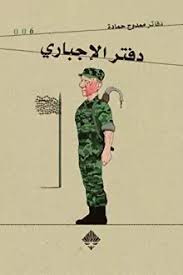
Some of them call it (the service of knowledge), and some of them call it (the compulsory service), but the truest name for it is the name given to it by the public: (compulsory). Compulsory, no matter how much they cover it with national cellophane, will remain one of the heaviest experiences that a person goes through. He will live a long time and die, and the heavy feeling that there is a gun on his shoulder will never disappear.
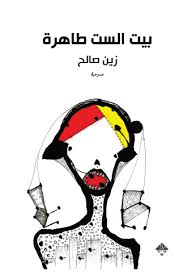
The two brothers, Helmy and Diaa, work in a car repair shop, while their mother works as a dancer in a nightclub. Every day, when she goes out to work, one of the brothers disguises herself in her clothes to imitate her, and exercises the same dominance over the other with which she treats them. In a theatrical text based on the play “The Maids” by the French writer Jean Genet, and taking place in the poor post-war neighborhoods of Damascus, Zain Saleh raises the questions that an entire generation suffers from about power, family, asylum, and gender.
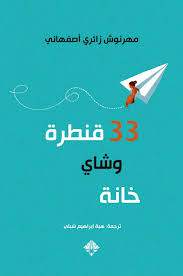
During her childhood, Mehrnoush and her siblings lived a luxurious and carefree life, and her family’s happiness was complete with the departure of the Shah, against whom her parents had fought. However, subsequent political transformations and the recruitment of children in the Iran-Iraq war prompted her parents to flee Iran. To protect their children. In 1986, a radioactive leak occurred at the nuclear power plant in Chernobyl, causing the neighboring city of Paribat to turn into a ghost town abandoned by its people. However, this event, which sparked international concern and popular solidarity around the world, was only passing news on television. During her childhood, Mehrnoush and her siblings lived a luxurious and carefree life, and her family’s happiness was complete with the departure of the Shah, against whom her parents had fought. However, subsequent political transformations and the recruitment of children in the Iran-Iraq war prompted her parents to flee Iran. To protect their children. In 1986, a radioactive leak disaster occurred at the Chernobyl nuclear power plant, causing the neighboring city of Paribat to turn into a ghost town abandoned by its people. But this event, which sparked international concern and popular solidarity around the world, was only passing news on television for the little girl, Mehrnoush. She and her family had immediately found their new home after their bitter refugee journey. Nearly thirty years later, Mehrnoush tells her story, juxtaposing the two most important events of her childhood: public anxiety over the nuclear disaster that caused thousands to lose their homeland, and the epic journey her family went through: escaping from Isfahan, periods of despair in Turkey, and getting lost in East Germany, until... Their arrival to their new home in West Germany; A new window on life opened for her, as if millions of colorful butterflies had entered through it. As for Mehrnoush, the child, who and her family had immediately obtained their new home after a bitter refugee journey. Nearly thirty years later, Mehrnoush tells her story, juxtaposing the two most important events of her childhood: public anxiety over the nuclear disaster that caused thousands to lose their homeland, and the epic journey her family went through: escaping from Isfahan, periods of despair in Turkey, and getting lost in East Germany, until... Their arrival to their new home in West Germany; A new window on life opened for her, as if millions of colorful butterflies had entered through it
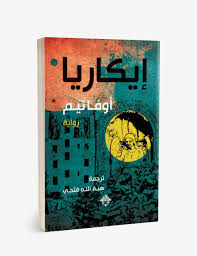
Influenced by the dream of a utopia and the ideas of the French philosopher Capet in his book “The Journey to Ikaria,” the two friends Plutz and Wagner embark on a journey to the New World, to participate in building the ideal society there, but they are separated upon their return in conjunction with the tremendous changes that Europe is witnessing at the beginning of the century. Twenty years ago, while Plotz immersed himself in realizing the Nazi dreams of building an ideal society; To become one of the figures in the theories of eugenics and racial cleansing, Wagner isolates himself from life. He works secretly in a library that hides banned books. Despite the estrangement between them, their destinies meet again after the fall of the Third Reich. Because of a mission, Hanzen sends the American officer; To discover the secrets of Plutz's life, by interrogating that friend who accompanied him for long periods of his life. Through the secrets revealed in lengthy conversations between book lovers, and the memoirs of a victorious officer in his defeated home country, Ova Tim - in his novel Ikaria - monitors the extent to which people may descend in their quest to build the ideal society.
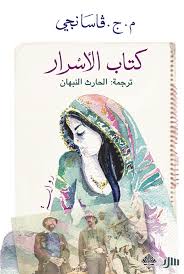
Retired teacher Pius Fernandez receives from one of his students an old notebook found in the back room of a shop in East Africa. It turns out to be the diary of a British officer who lived seven decades ago in the small town of Kikono. The diary captivates the teacher, and he tries to recreate the world in it, and breathe life into the souls trapped there, discovering a dark, burning secret, the secret of a simple man named “Pippa” whose life, after his marriage to “Mariamo,” became painfully linked to the life of the English officer. As Fernandez follows the diary's trail, he himself eventually becomes one of the tales of the Book of Secrets. In this novel, which won the Giller Prize in its first edition, in 1994, Vasanji writes an influential work rich in questions, about a very rich and complex world, vibrant with colorful images, against the backdrop of great historical changes.
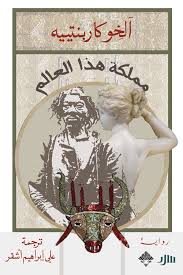
After Macendall escapes and is pursued, he takes advantage of the strange abilities with which he has been endowed, taking on the appearance of different animals, taking advantage of his talent to move instantly from one place to another, and because of the belief of his contemporaries in him, he encourages with this magic the most dramatic and strange uprisings in history. A complete mythology remains of Macendal, accompanied by magical chants that are memorized by all the people, and are still sung in Voodoo ceremonies. In this novel, Alejo Carpentier draws inspiration from this mythology from a series of extremely strange events that occurred in Haiti, in a specific era that does not extend to a short human life, and he presents them through the character of “T. Noel,” who finally realizes how a person can find his greatness and his maximum extent. In the kingdom of this world.
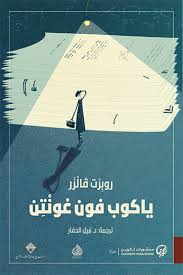
"This is freedom. It is a winter thing that cannot be tolerated for long. In it one must constantly move, as we do now. In freedom one must dance, it is cold and beautiful. But do not fall in love with it, because this will make you very sad later. A person only exists in the areas of freedom for moments, and no more. We have crossed the limit now. Look at the wonderful path on which we are skating, how it is slowly dissolving. You can now see freedom dying. When you open your eyes, this will be a haunting scene The heart is yours many times.” ***** Walser treats language in this novel with as much respect as one would treat a revered and close friend at the same time. Hermann Hesse "Jacob von Gonten" involves a kind of parody of the traditional educational novel. Christopher Middleton
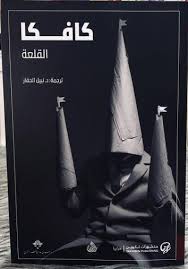
In The Lost, Kafka describes precisely and at length the world of work in the modern era, this world that grinds everything into dust, in which no rest periods are allowed, in which only the succession of working hands is allowed. This novel is one of the most international novels that reveals modern industrial society with insight, farsightedness, and prediction. Wilhelm Emmerich
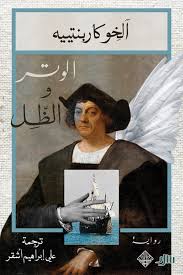
In the nineteenth century, the Papal Council was studying the canonization of Christoph Columbus as a saint. With his discovery of the New World, he doubled the area of land that Christianity could reach, but the large hall that discusses the matter is full of supporters and opponents of this canonization, as well as real-life figures and invisible ghosts. What will be the final decision? In this novel, the writer starts from a real event, and takes us centuries back to read what Columbus himself wrote about his travels. The writer presents us with a new picture, removing the legendary aura that history has given to this character. In this novel, which is the last novel written by Carpentier, he plays the string, the hand, and the shadow, all of which once again confirm this writer’s ability to merge history with art, and reality with the imagination, in a unique style.
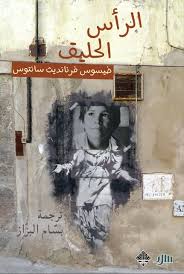
In this book there are pictures from the world of childhood in its openness to the world of adults, snapshots from the lives of children who receive their first lessons in the school of life and survival, and for the first time look out from the window of their reality and their ages at the world of adults and the prospects for the future that are shaped by an important historical and social stage, which is the Spanish Civil War: Seriousness, fun, drinking, singing, an atmosphere of war, and the sound of bombs. Waiting for a father who will not return, abandoning homes, being displaced from homes, and crossing lines. A life in shelters, a life in mines, the dreams of youth, and teenage love
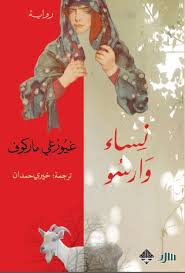
As soon as Pavel, at the head of a geological expedition, arrives at “Devil’s Hill,” the old shepherd living there warns him that he must leave the hill within a month, before he ends up committing suicide on the branch of an oak tree, and the fate of his mission becomes the same as the fate of the previous eight missions. However, the enthusiastic young man insists on making the mission a success, even though the members of his mission are fleeing down the hill one after the other. Little by little, the two get closer: the young man who studied in the Polish capital, Warsaw, and the old man who knows the hill’s hidden secrets, and their evenings become endless darkness, during which “Pavel” tells the shepherd about his love affairs, while the latter listens in amazement, and his heart burns with love for the nun Maria, the last of the young man’s lovers. . In “The Women of Warsaw,” Georgi Markov writes about two different worlds that border on contradiction, leaving the oak tree to chart the path to the end...

The fuse of war ignites between the Monsalbes and the Barragans, a fierce war governed by only one law: blood for blood. As the two families seek to accumulate wealth through illicit activities, love with its presence creates deeds, changes paths, and creates mountains of words that people pass on about the members of the two families until they are no longer what they are, but rather what people tell and imagine. Thus begins the legend that became true from too much of it being passed on, or perhaps it is a true story that became a legend from too much of it being told. With an interwoven narrative full of sensory details, drawing from the springs of magical realism, Laura Restrepo writes a novel that is brutal and sweet at the same time, an epic story about desire and betrayal, a myth about life and death crouching in the desert: “like a leopard in the sun.”
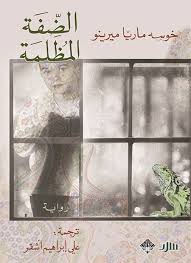
A university professor sees a painting in a museum in which a person very similar to his father is drawn, and he feels deeply that the resemblance does not stop at the symmetry of the two faces alone. A frightening intuition awakens within him, and he tries to meet a relative of the descendants of the man in the painting. The novel's hero enters the maze of dream and wakefulness, and the maze of memory with its ramifications, evoking stories in which the real is mixed with the imaginary, and little by little we find that we are faced with several narratives, each one of which brings us into a new loss, until we ourselves become walking on the border between dream and wakefulness. In “The Dark Bank,” José María Merino writes about the other or the companion, and about the past and memory, in a wonderful labyrinthine structure, within a vast time that lies on the margins of hours and pulses, and offers us pure pleasure that stimulates our imagination and senses.
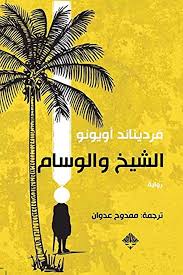
This novel will surprise you a little. After you finish reading it, you will not be able to tell it. The writer is from Cameroon, and the event is simple. It takes place in the apartheid society controlled by the whites: The village residents wake up to news from the military ruler stating that the “great leader of the whites” will come from Paris to award old Mika a medal. In appreciation for his efforts and sacrifices, he is the one who lost his two sons who fought with the French army, and donated his land to the new church. Like the residents of his village, Mika feels great as a result of this appreciation, but he soon realizes that he is not strong, but rather a weak, oppressed old man in a weak, oppressed society. A battle in which he is defeated without his opponent appearing in the ring. The old man and the people of his village are trying to cling to what remains in the memory about themselves, their customs, their methods of expression, their reactions, and their struggle for justice, but they realize on a daily basis: ((The whites have left nothing for us)). Ferdinand Oyono does not interfere, as if he is sitting among them, doing what they do, so you do not know his direct position on what is going on, and he also drags you to sit with them and participate with them. It does not only aim to introduce you to the problem that people are experiencing, but also to the creative expression methods of these people.

Enter your address and we will specify the offer for your area.